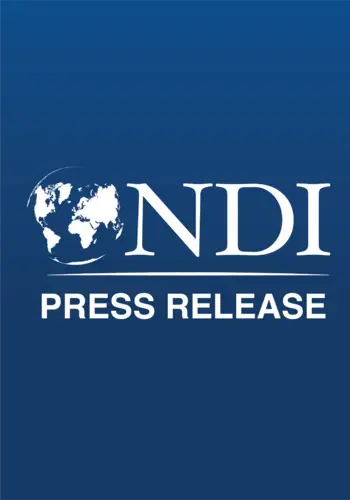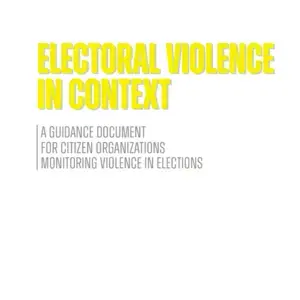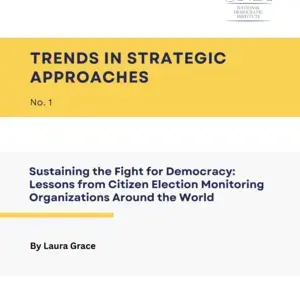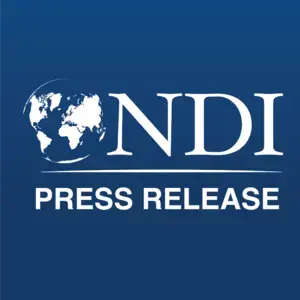KABUL – Key reforms enacted since widespread fraud marred Afghanistan’s 2009 and 2010 polls have brought about a guarded optimism among political and civic leaders that next year’s presidential and provincial council elections will be better, according to the findings of a pre-election assessment mission fielded by the National Democratic Institute (NDI).
Scheduled for April 5, 2014, “these elections are poised to be the first peaceful transfer of political power in the country’s history,” the delegation said. They “will be a crucial milestone in Afghanistan’s political transition…If broadly viewed by the Afghan people as inclusive and transparent, the upcoming polls could play a pivotal role in advancing stability and democratic development in Afghanistan.”
Changes made since the previous polls included a new legal framework and operating structure for the 2014 electoral process. One significant reform was the involvement of Afghan parliamentarians and civil society representatives in selecting nominees to the electoral bodies that oversee the elections, which the delegation said was a “marked improvement over a process that, in the past, was dominated by the president.”
But the mission statement noted that there are serious challenges that could impact the integrity of the polls. They include: security issues that could prevent candidates and political groupings from campaigning as well as voters from casting ballots in certain parts of the country; expectations of fraud based on past history; recruiting and training staff, particularly female poll workers, in the winter; lack of government neutrality; possible misuse of government resources; and candidates’ fear of interference from domestic and foreign sources.
“The upcoming elections will determine the direction of the country in the years ahead,” the delegation said. “It is imperative that the successor government has the legitimacy that comes from being elected through a credible process. A deeply flawed election, however, could exacerbate political tensions and seriously impair the ability of the new government to meet the security, national reconciliation and economic challenges that lie ahead.”
The delegation was made up of Ambassador Karl Inderfurth (United States), former U.S. assistant secretary of state for South Asian affairs and former U.S. representative for special political affairs to the United Nations; the Honorable Audrey McLaughlin (Canada), former Federal Member of the Canadian Parliament and former leader of the New Democratic Party of Canada; Damaso Magbual (Philippines), chair of the board of directors of the Asian Network for Free Elections (ANFREL) and Executive Committee member of the National Citizens’ Movement for Free Elections in the Philippines; and Peter Manikas (United States), NDI director of Asia programs.
The mission ran from Dec. 3 to 9, 2013, and assessed the political environment, the framework of the upcoming elections, and factors that could affect the integrity of the electoral process. The group met with President Hamid Karzai, candidates from all 11 presidential and vice-presidential tickets, provincial council candidates, election authorities, government and security officials, media representatives, citizen monitoring groups, women activists, youth leaders and international organizations.
NDI presented a number of recommendations intended to promote inclusive, transparent and credible elections. They included public awareness programs on the activities of the Independent Election Commission (IEC) and the Independent Electoral Complaints Commission (IECC); public outreach on the IEC’s anti-fraud strategies and the Ministry of Interior’s electoral security plans; reinforcement of non-interference and government neutrality; the establishment of runoff procedures; and a transition plan for a handover of power.
The mission also recommended uniform standards for IEC staff recruitment and training by the election management bodies; the conduct of IEC dialogues with civil society media and political parties at the provincial level; protection of the rights of women and encouragement of youth to participate in the electoral process; and measures to ensure election monitoring.
NDI is a nonpartisan, nonprofit organization working to support and strengthen democratic institutions worldwide through citizen participation, openness and accountability in government. NDI has been conducting political development and electoral support programs in Afghanistan since 2002. The pre-election assessment mission was funded by the U.S. Agency for International Development.




